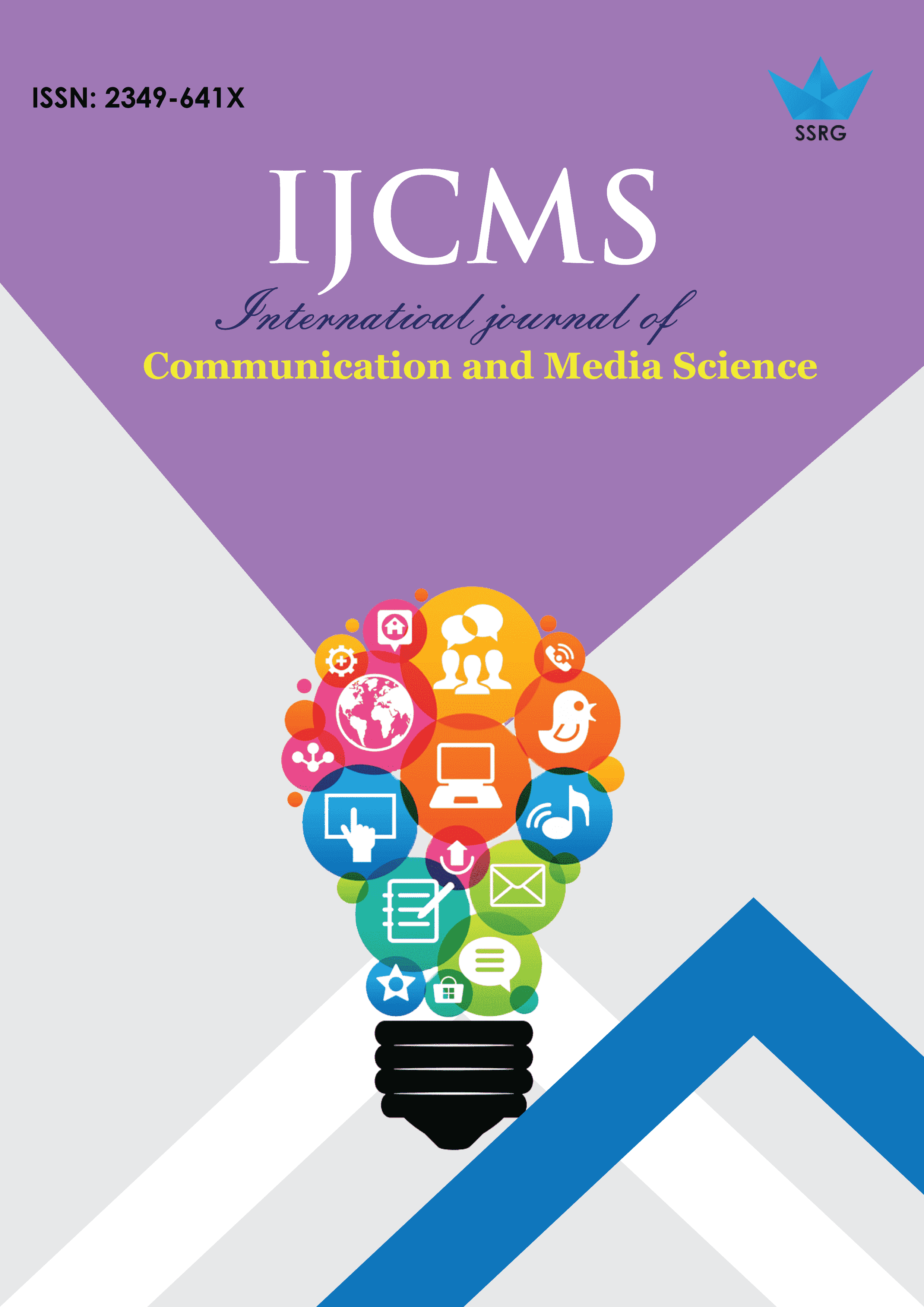Music Genre Classification

| International Journal of Communication and Media Science |
| © 2020 by SSRG - IJCMS Journal |
| Volume 7 Issue 1 |
| Year of Publication : 2020 |
| Authors : Rajeeva Shreedhara Bhat,Rohit B. R., Mamatha K. R |
How to Cite?
Rajeeva Shreedhara Bhat,Rohit B. R., Mamatha K. R, "Music Genre Classification," SSRG International Journal of Communication and Media Science, vol. 7, no. 1, pp. 8-13, 2020. Crossref, https://doi.org/10.14445/2349641X/IJCMS-V7I1P102
Abstract:
A music genre is a conventional category that identifies some pieces of music as belonging to a shared tradition or set of conventions. It is to be distinguished from musical form and musical style. Music can be divided into different genres in many different ways. The popular music genres are Pop, Hip-Hop, Rock, Jazz, Blues, Country and Metal.
Categorizing music files according to their genre is a challenging task in the area of music information retrieval (MIR). Automatic music genre classification is important to obtain music from a large collection. It finds applications in the real world in various fields like automatic tagging of unknown piece of music (useful for apps like Saavn, Wynk etc.).
Companies nowadays use music classification, either to be able to place recommendations to their customers or simply as a product. Determining music genres is the first step in the process of music recommendation. Most of the current music genre classification techniques use machine learning techniques.
The same principles are applied in Music Analysis also. Machine Learning techniques have proved to be quite successful in extracting trends and patterns from the large pool of data.
Keywords:
Music Genre
References:
[1] Vishnupriya S, and K.Meenakshi, “Automatic Music Genre Classification using Convolution Neural Network”, IEEE Conference 2018.
[2] G.Tzanetakis and P. Cook. “Musical genre classification of audio signals, Speech and Audio Processing”, IEEE Transactions, July 2002.
[3] Chandsheng Xu, Mc Maddage, Xi Shao, Fang Cao, and Qi Tan, ”Musical genre classification using support vector machines”, IEEE Proceedings of International Conference of Acoustics, Speech, and Signal Processing, Vol. 5, pp. V-429-32, 2003.
[4] Matthew Creme, Charles Burlin, Raphael Lenain, “Music Genre Classification ”, Stanford University, December 15, 2016.
[5] T. Feng, “Deep learning for music genre classification”, 2014.
[6] Daniel Grzywczak, Grzegorz Gwardys, “Deep image features in music information retrieval”, 10th international conference, AMT 2014, Warsaw, Poland, August 11-14, 2014 proceedings, pp 187-199.
[7] Muhammad Asim Ali, Zain Ahmed Siddqui, “Automatic Music Genres Classification using Machine Learning”, International Journal of Advanced Computer Science and Applications, Vol 8, No 8, 2017.
[8] Hareesh Bahuleyan, “Music Genre Classification using Machine Learning Techniques”, University of Waterloo, ON, Canada, 2018
[9] Sam Clark, Danny Park, Adrien Guerard, “Music Genre Classification using Machine Learning Techniques”, 2012.
[10] Eve Zheng, Melody Moh, Teng-Sheng Moh, “Music Genre Classification: A N-gram based Musicological Approach”, 7th International Advance Computing Conference, 672-677, 2017.
[11] http://marsyas.info/downloads/datasets.html

 10.14445/2349641X/IJCMS-V7I1P102
10.14445/2349641X/IJCMS-V7I1P102